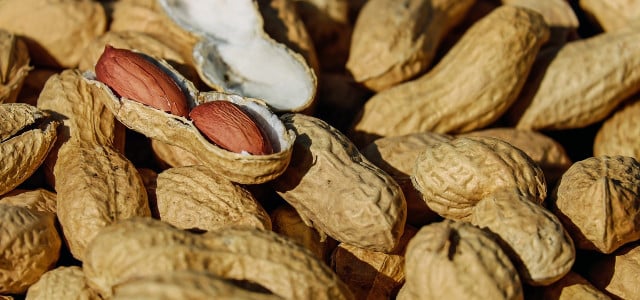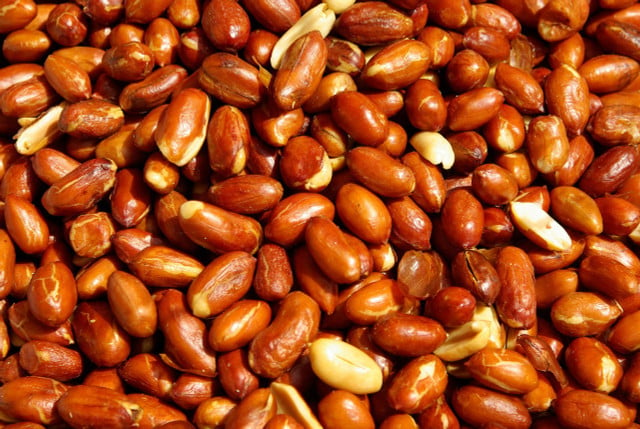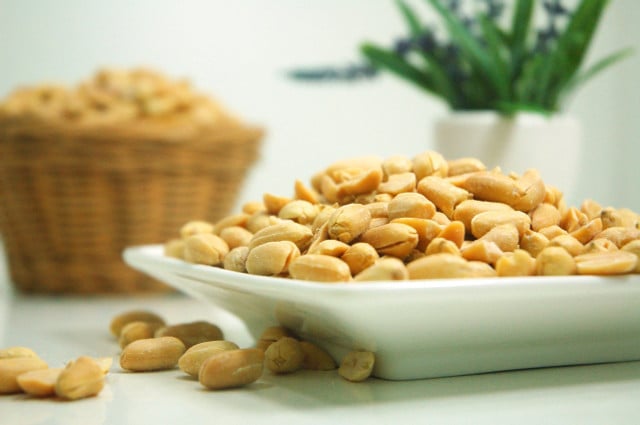
Peanuts are rich in various important nutrients. However, their environmental impact looks just as bad as that of other nuts.
Peanuts aren’t actually nuts. They are legumes, like peas and beans. Because they don’t grow on trees, but in fields underground. However, they are often classified as nuts because they have similar nutritional values. Like other nuts, peanuts are rich in fat, protein and various vitamins and minerals.
Even though nuts have now become a common food in this country, they are actually anything but regional. The long transport routes in particular make peanuts problematic from an ecological perspective.
Production and processing of peanuts
Peanuts originally come from the Peruvian Andes in South America, but are now grown in many tropical and subtropical climates. Over time, peanut seeds also ended up in parts of Africa and Asia. But these days you can also find large peanut fields in the south of the USA. The countries that export the largest quantities of peanuts worldwide are the USA, Argentina, Sudan, Senegal and Brazil. In Europe, peanuts are only grown in Cyprus.
The journey of the peanut into our hands is therefore long. Here’s an example:
-
Cultivation and harvesting takes place in the USA.
-
Value determination and initial drying take place in central collection points in the USA.
- The nuts are then grown, peeled and packaged at the central collection point. .
- After import, processing takes place in a European country where the peanuts are roasted and salted.
Peanuts: nutritional values and calories

(Photo: CC0 / Pixabay / jackmac34)
According to Healthline, peanuts have the following nutritional values per 100 grams:
- 567 kilocalories
- 25.8 grams of protein
- 48.10 grams of fat
- 16.1 grams of carbohydrates
Peanuts are about half fat. These are mostly unsaturated fatty acids, which have a cholesterol-lowering effect. The nuts are also rich in vegetable protein. They also contain significant amounts of fiber, vitamin E, B vitamins, manganese, magnesium and phosphorus, according to Healthline.
Peanuts are a good source of a variety of important nutrients. However, the health benefits of nuts vary depending on the level of processing. Additional fat is often added to salted peanuts to make the salt stick better. Last but not least, you consume a lot of sodium if you frequently eat salted peanuts. This promotes water retention and increases the risk of high blood pressure. You can find out more about this here: How much salt is healthy? WHO presents new recommendations
In other snacks, sugar is also added to the nuts. Peanut butter also often contains added fat, salt and sugar. To avoid this, it is advisable to pay attention to unsalted peanuts that have no other additives. Instead of peanut butter, you can use peanut butter, which is usually made from 100 percent peanuts. We also recommend paying attention to organic quality peanuts to avoid pesticide residues. In this way you also support organic farming.
Are peanuts ecologically acceptable?

(Photo: CC0 / Pixabay / forwimuwi73)
Peanuts are not regionally available. This forces imports from the respective growing countries. Transport causes a lot of CO2 emissions. A plus point for peanuts: They require less water than almonds or cashews, according to the Bremen Consumer Center.
However, due to the high global demand for peanuts, ever larger plantations have emerged in the growing areas. These cause devastating damage, especially through large-scale deforestation and monoculture cultivation. In Senegal, large parts of the country have now become infertile due to peanut cultivation. In addition, large amounts of pesticides are used in peanut cultivation. These endanger biodiversity in the relevant areas.
Peanuts are therefore a critical food from social and ecological aspects. We generally recommend using organic and FairTrade quality peanuts. This way you can ensure that basic ecological standards and labor rights were adhered to during cultivation.
In general, it is recommended to only consume peanuts in moderation and to use regional alternatives. For example, you can get hazelnuts, walnuts, sunflower and pumpkin seeds from regional cultivation.
Read more on Techzle\.com:
- Almonds: healthy, delicious and unsustainable?
- Hazelnuts are delicious sources of nutrients, but they have a dark side
- Fairtrade chocolate: the most important seals for fair cocoa products
Edited by Luise Rau